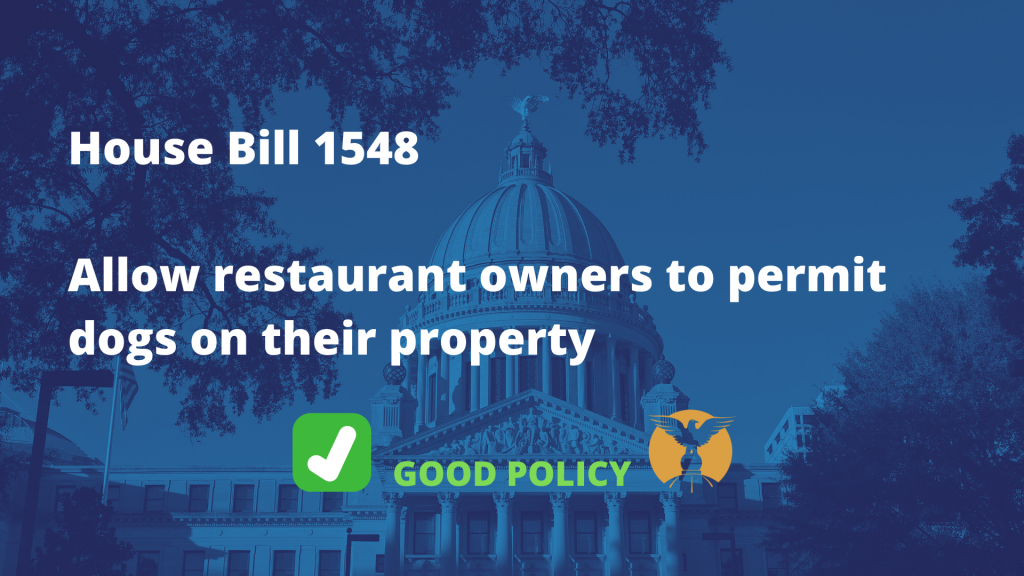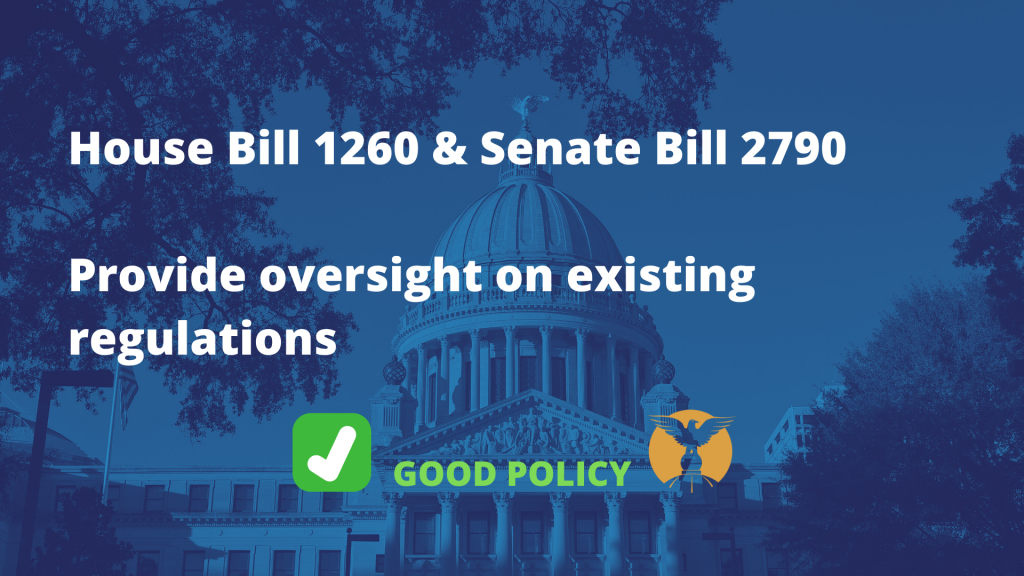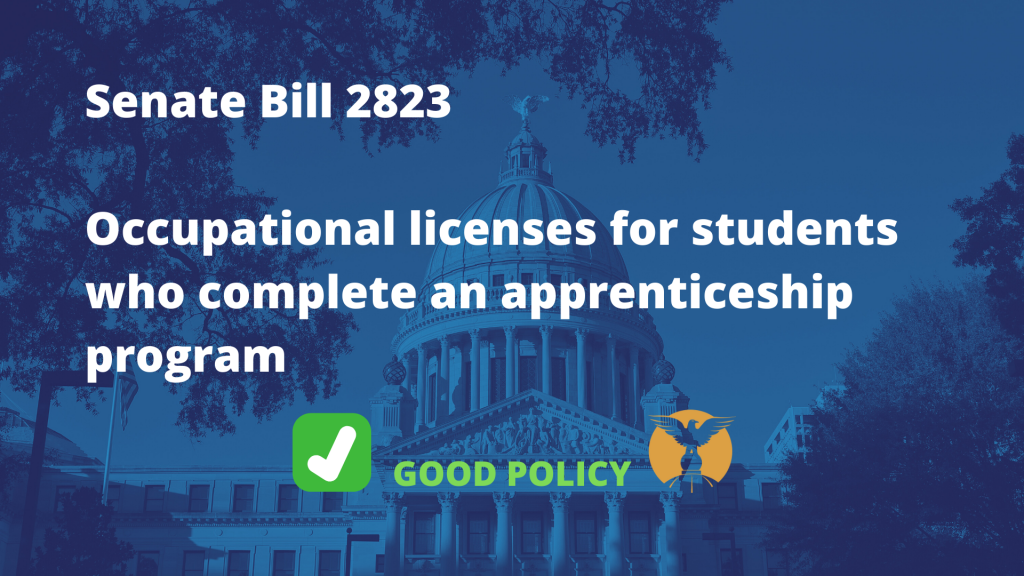At a meeting of the Ways and Means Temperance Subcommittee Wednesday, legislators heard about the advantages and disadvantages of removing some of the nation’s most restrictive laws on alcohol.
There is building momentum to change the state’s antiquated policies enacted after the state was the last one nationally to end prohibition in 1966 after allowing the sale of beer in 1933.
Ocean Springs Mayor Shea Dobson said he supports wine in grocery stores because of economic development, increased product availability, and its ability to possibly attract millennials.
Mississippi Department of Revenue Commissioner Herb Frierson told the subcommittee that he supports allowing package stores to sell lottery tickets. He also said that any attempt to bring wine to grocery stores would cause them to want to sell liquor as well.
His agency supports spinning off the state’s massive liquor and wine warehouse to a public/private partnership like the Mississippi Lottery. He said pure privatization would result in higher costs for consumers (since the state acts as the distributor and contracts shipping to an outside firm) and would cost the state $80 million in revenue annually from giving up the warehouse.
There is popular support for changing state law to sell wine in grocery stores. According to a telephone poll of 700 registered voters by Spry Strategies, 74 percent say they would support such legislation and 48 percent said they’d be more likely to vote for a legislative candidate who’d support the sale of wine in grocery stores.
Wine sales in grocery stores are legal in 39 states, including Alabama, Tennessee and Louisiana.
The poll was commissioned by Looking For Wine, a coalition that seeks to bring the sale of wine to grocery stores.
There are 600 permits issued for package stores in the state and 2,000 permits for restaurants and bars statewide.
According to the DOR, the warehouse’s damage rate is only 0.11 percent and it boasts an accuracy rate of 99.9 percent.
Victor Pittman is the president of the Mississippi Hospitality Beverage Association and owner of a package store, Silver Leaf Wines and Spirits, in Ridgeland. His organization has defeated efforts to bring wine to grocery stores in the past few years.
“Out of state retail corporations harvest money that could be recirculating in our local economies,” Pittman said. “Online retailers leave nothing for recirculation in the economy. Municipalities and our state lose because the tax base shrinks. Direct shipments would be disruptive and a disaster.”
He told the subcommittee that allowing grocery stores to sell wine would largely put the state’s package stores out of business since most of their money comes from wine sales. He said increasing the number of permits would only dilute market share because of the state’s declining population.
He also said any change to the state law — which by Mississippi counties and cities are “dry” and sales of alcohol are forbidden barring a local election to change a municipality or county to “wet” — would be an imposition upon the dry counties in the state.
“Big out-of-state grocery and box retailers have had years of practice of profiting off the destruction of public health in other states,” Pittman said. “Alcohol markets are unable to regulate themselves without being destructive to public health and safety. Any increase in consumption places an undue burden on taxpayers, public safety officials and the health care industry.”
He also claimed that alcohol-related vehicular fatalities would go up if the state liberalized the sale of wine and spirits.
Subcommittee chairman and state Rep. Hank Zuber (R-Ocean Springs) asked Pittman if his organization would be willing to reach a compromise on allowing additional permits per entity to allow outlets like Costco and Trader Joes (which rely heavily on alcohol sales as part of their business model) to have multiple stores in the state.
Pittman said his organization would open to a possible compromise.
Among the bills being considered by the legislature include:
- House Bill 979 would end the flip the default setting of “dry” to “wet.” If an area wants to go back to being dry if this bill became law, it’d have to hold another election.
- House Bill 4 would increase the maximum number of package retailer permits from the present one to three.
- House Bill 1088 and Senate Bill 2533 would allow individuals to purchase wine from an out-of-state winery and have it shipped to a package retailer in Mississippi. Right now, Mississippi is one of only five states to ban the direct shipment of wine to a consumer.
- House Bill 1381 would allow the sale and consumption of alcohol at athletic events at a public school, community college or university. It also “brings forward” code sections related to alcohol that could allow the legislature to enact further changes to state law.
- Senate Bill 2534 would authorize the direct shipment of wine to consumers.
The state is a control state, which means the state controls the distribution of wine and spirits. Even wine and liquor made in Mississippi have to go to the state’s warehouse in Gluckstadt before they can be shipped out to package stores, restaurants and bars statewide.
A bill in the legislature would create the Mississippi Millennial Commission to study issues affecting millennials. Knowing the general pace of government, this would likely be completed by the time millennials are nearing retirement.
But it's not an unworthy topic. So in this episode of Unlicensed, MCPP's Brett Kittredge chats with special guest and friend of the movement Anja Baker about this proposed commission while providing their thoughts on what the state can do to stem the tide of a shrinking population.
The owner of a large medical cannabis cultivator in Arkansas has paid two lobbyists to raise opposition in the legislature against the state’s medical marijuana ballot initiative.
According to state records, marijuana entrepreneur Stephen LaFrance has hired Jim and Ted Thompson of Thompson and Associates. No lobbying issue was listed on the registration forms filed with the secretary of state’s office.
LaFrance is the owner of the Natural State Medicinals, which started shipping marijuana to dispensaries in May 2019. The White Hall, Arkansas-based cultivator was the second grower to make their products available to dispensaries in Arkansas.
What LaFrance is seeking is obvious: To kill Initiative 65, which would create a medical cannabis program in Mississippi and mandate that the state Department of Health run the program.
According to Mississippi law, once a ballot initiative receives enough signatures and the secretary of state’s office approves them to appear on the ballot, the legislature has the right to put a legislative alternative on the ballot as well. These are designed to confuse voters and siphon support from the original initiative.
Jamie Grantham, the communications director for Mississippians for Compassionate Care, said the campaign’s position on the legislative alternatives is that they are an attempt to kill the initiative.
“The legislature has had 20 years to do it and they’ve not wanted to touch it,” Grantham said. “Multiple legislators have put forth bills and none of those has made it to the floor for a vote at the capitol. It requires a voter on November 3 to get to the bottom of the ballot, who is maybe is excited about voting yes and it’s a two-step, convoluted process in order to defeat it.”
There are four such concurrent resolutions in the legislature, with three in the House and one in the Senate. The one thing all would do is punt creation of a program until next year’s legislative session, which is highly unlikely.
Since they are resolutions and not bills, they only require approval of the legislature and don’t need the signature of Gov. Tate Reeves to appear on the ballot.
Only House Concurrent Resolution 39, by state Rep. Trey Lamar (R-Senatobia), would create a program and would restrict the program to those with terminal conditions. The other three resolutions are exact duplicates of each other.
The most recent case of the legislative alternative was during the fight over Initiative 42, which would’ve given the Hinds County Chancery Court the power to appropriate more state money for individual school districts through injunctions.
The legislature passed an alternative, Initiative 42A, and the original initiative died by a 51.66 percent to 46.98 percent margin. The difference between those who voted for approval of 42 and the alternative was 8,933 votes or about two percentage points. Ultimately, the alternative didn’t do enough damage to 42 to hasten its demise with voters.
Keeping Mississippi from enacting a program could likely be profitable for Arkansas.
According to a story on KFSM TV in Arkansas, patients in the Natural State have spent $35.69 million on medical marijuana since sales began in May and 16 dispensaries are open in the state.
House Bill 117, sponsored by Rep. John Faulkner, would make it easier for a water well contractor to get a license.

HB 117 would remove the requirement that an applicant must present three affidavits to the Mississippi Department of Environment Quality’s examining committee to receive a license, in addition to being at least age 21, reasonable knowledge of the DEQ rules and regulations on wells, and have three years’ experience.
Securing an affidavit, much less three, requires the costly services of an attorney, which can be a substantial barrier to entry for someone wanting to enter the well drilling profession. Alabama, Arkansas, and Louisiana do not have the affidavit requirement.
Though just one license, this is a good step toward making it easier to earn a living in Mississippi.
Today, about 19 percent of Mississippians are in an occupation that requires a license. And this is particularly troubling in low and middle-income occupations. Mississippi currently licenses 66 of 102 lower-income occupations, as identified by Institute for Justice.
On average, licensing for low and middle-income occupations in Mississippi requires an individual to complete 160 days of training, to pass two exams, and to pay $330 in fees. Those numbers will vary depending on the industry. For example, a shampooer must receive 1,500 clock hours of education. A fire alarm installer must pay over $1,000 in fees.
The net result is a decrease in the number of people who can work. A study from the National Bureau of Economic Research found that occupational licensing reduces labor supply by 17 to 27 percent.
In Mississippi, the Institute for Justice estimates that licensing has cost the state 13,000 jobs. That represents two Nissan plants that could be created by reducing our licensing burden, and it wouldn’t require a dime in taxpayer incentives.
MCPP has reviewed this legislation and finds that it is aligned with our principles and therefore should be supported.
Read HB 117.
Track the status of this bill and all bills in our legislative tracker.
Senate Bill 2594, sponsored by Sen. Dennis DeBar, would gut the state’s Education Scholarship Account and kick hundreds of students out of the program.

In 2015, Mississippi became just the third state in the nation to adopt ESAs. This is an innovative approach to education that allows parents to select the best educational setting, rather than just a private school, for their children.
With an ESA, parents are able to use the funds that would otherwise be spent on public education to pay for private school tuition, tutoring, therapy, textbooks, online classes, and other educational services. With this program, parents are able to truly customize and create a specific education for their children based on their needs. And by every measure of significance, the program has been wildly popular. Hundreds of families are on the wait list. A 2018 review of the program showed 91 percent satisfaction by parents of ESA students.
ESAs have also brought a new meaning to accountability in education. Rather than test scores or government oversight that provide parents with little ability to do anything with the information they receive, parents now have the ability to evaluate the education their child is receiving and make the decision on whether they would like to continue with the current educational setting or make a different choice.
But SB 2594, a bill to extend the repealer on the ESA, would kick hundreds of families out of the small program and likely derail it to the point that it can never grow and only serve a few students in a public school-lite setting.
The proposed legislation would change the definition of “eligible school” to a state-accredited special purpose school, an accredited online learning program, or a private school with a special purpose program, cutting current options by more than half. Families who live near the state lines and have found a school in another state because there is not one nearby would also be kicked out of the program. The changes would also require private schools to administer testing for participating students, rather than trusting parents to make these decisions.
Last year, a clean bill to extend the repealer passed the Senate, but was never considered in the House.
MCPP has reviewed this legislation and finds that it violates our principles and therefore must be opposed.
Read SB 2594.
Track the status of this and all bills in our legislative tracker.
House Bill 1548, sponsored by Rep. Joel Bomgar, would allow restaurants to permit pet dogs on their property if they choose.

Last summer, the issue of dogs in restaurants came into the spotlight when the Department of Health said this is illegal after the Clarion Ledger ran a story on pet friendly restaurants. MDH cites the Food and Drug Administration’s Food Code model, which is housed in the U.S. Department of Health and Human Services, for the prohibition. That model recommends prohibiting animals in food service establishments, save for service dogs.
This would write the policy of permitting dogs, if a restaurant owner chooses, into law. This would prevent the Department of Health from issuing blanket prohibitions on dogs in restaurants in the future.
MCPP has reviewed this legislation and finds that it is aligned with our principles and therefore should be supported.
Read HB 1548.
Track the status of this bill and all bills in our legislative tracker.
House Bill 1260, sponsored by Rep. Randy Boyd, and Senate Bill 2790, sponsored by Sen. John Polk, would allow the Occupational Licensing Review Commission to review the substance of any existing regulations.

Mississippi’s Occupational Licensing Review Commission, adopted in 2016, is a great step to reigning in the regulatory arm of the state, but is limited to new regulations only. This would give the Commission – which is made up of the governor, attorney general, and secretary of state – the ability to review any existing regulation and to act upon it if it does not:
- Increase economic opportunities for all of its citizens by promoting competition and thereby encouraging innovation and job growth.
- Use the least restrictive regulation necessary to protect consumers from present, significant and substantiated harms that threaten public health and safety.
Today, Mississippi has more than 117,000 regulations, which numerous empirical studies show to have a detrimental effect on economic growth. Mississippi also licenses 66 low-and-middle income occupations. According to a recent report from the Institute for Justice, Mississippi has lost 13,000 jobs because of occupational licensing and the state has suffered an economic value loss of $37 million.
This change would help the state continue the stated goals of decreasing our regulatory burden and increasing economic opportunities.
MCPP has reviewed this legislation and finds that it is aligned with our principles and therefore should be supported.
Track the status of this and all bills in our legislative tracker.
Senate Bill 2823, sponsored by Sen. Dennis DeBar, would provide a new pathway to receive an occupational license, making it easier to earn a living.

This bill would allow individuals to complete an apprenticeship program in lieu of the traditional classroom hours to obtain an occupational license. You would still need to complete any necessary tests and pay all the required fees. The apprenticeship program will also count toward school credit.
This is a good step toward making it easier to earn a living in Mississippi.
Today, about 19 percent of Mississippians are in an occupation that requires a license. And this is particularly troubling in low and middle-income occupations. Mississippi currently licenses 66 of 102 lower-income occupations, as identified by Institute for Justice.
On average, licensing for low and middle-income occupations in Mississippi requires an individual to complete 160 days of training, to pass two exams, and to pay $330 in fees. Those numbers will vary depending on the industry. For example, a shampooer must receive 1,500 clock hours of education. A fire alarm installer must pay over $1,000 in fees.
The net result is a decrease in the number of people who can work. A study from the National Bureau of Economic Research found that occupational licensing reduces labor supply by 17 to 27 percent.
In Mississippi, the Institute for Justice estimates that licensing has cost the state 13,000 jobs. That represents two Nissan plants that could be created by reducing our licensing burden, and it wouldn’t require a dime in taxpayer incentives.
MCPP has reviewed this legislation and finds that it is aligned with our principles and therefore should be supported.
Read SB 2823.
Track the status of this bill and all bills in our legislative tracker.
One hundred years ago, almost to the day, our nation crippled the alcohol industry and swept its economic impact under the rug with the launch of nationwide prohibition.
In banning alcohol, we opened the door for the legend of Al Capone, for the literature of F. Scott Fitzgerald in the Great Gatsby, and for the great sport that is NASCAR. And yet, it is now time to fully close the door on this failed policy in Mississippi.
You may think that prohibition ended long ago, but in truth, antiquated laws and regulations have remained on the books which have crippled many small businesses, stifled entrepreneurship, and left Mississippi in the dust when it comes to the modern boom of the alcohol industry. Luckily, sensing the shift in public opinion, a series of bills have been introduced this year in our legislature that would work to release the shackles which have so long weighed down our market in the state.
Sunday sale of alcohol. Grocery stores allowed to sell wine. Direct shipment of wine. Expansion of liquor licenses. Privatization of distribution. Craft brewery freedom. Regulatory reform. A range of great bills have been introduced that would dramatically empower both the consumer and the entrepreneur. These ideas have the capacity to decisively make this the year of alcohol freedom, and officially end prohibition in the state.
This legislation is not just about alcohol, but about one’s fundamental right to make decisions for ourselves without the government trying to make decisions for us. Does the state believe we are not intelligent enough to control our own lives? While this expansion of freedom and personal liberties should truly be enough to stir the heart of any patriot into action, it is also worth noting the dramatic economic impact that these policies could have on our communities.
With many of our leaders discussing workforce development and constantly seeking to attract new business into the state, often with taxpayer money or resources, it becomes all the more critical that we embrace existing market opportunities and encourage entrepreneurship locally. Give the craft brewer the freedom he needs to run a successful business, the store owner the freedom she needs to expand and open multiple stores, and the consumer the chance to choose where he wants to purchase his wine.
The 2018 Economic Impact Study of America’s Beer, Wine & Spirits retailers found that beverage retailers alone create more than 2.03 million jobs from the sale of alcohol. The direct economic impact of the retail industry is “more than $122.63 billion annually; the total economic impact of the industry is $363.33 billion annually. This creates $47.9 billion in local, state, and federal taxes.” Yet, we have turned our back on these jobs and this investment, by restraining our local businesses and making it difficult, if not impossible for them to operate.
Furthermore, while the entire alcohol industry is growing around the country, the Beverage Information Group has found that it is the small businesses in the market who are expanding the fastest. Thus, in continuing our current policies, we hurt local small businesses the most. With massive restrictions on how breweries and distilleries can sell directly to customers, it is no wonder that Mississippi is annually ranked last in terms of craft beer production. While this industry operates with $650 of economic production per capita in Vermont, in Mississippi it only produces $150 per capita. This industry is so impactful, the University of Vermont even offers a program on the business of craft beer.
Imagine the degree of growth we could experience if we released the chains that we have used for so long to tie down our small businesses in Mississippi, within the alcohol industry and beyond. Only by finally and truly ending prohibition in the state, can we launch an economic expansion powered by alcohol freedom.
Not only do we deserve the liberty to build businesses and make consumption choices without government shutting us down, but we deserve to experience the economic growth and investment in our economy that so many other states are currently seeing. I dream of the day that I can enjoy a locally brewed beer with the knowledge that I live in a state that encouraged that small business to flourish and expand rather than wither.
This column appeared in the Meridian Star on February 21, 2020.
